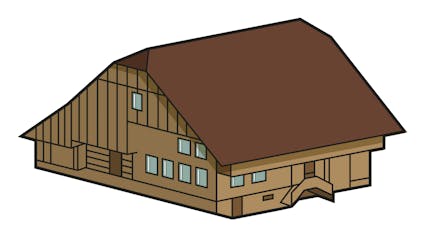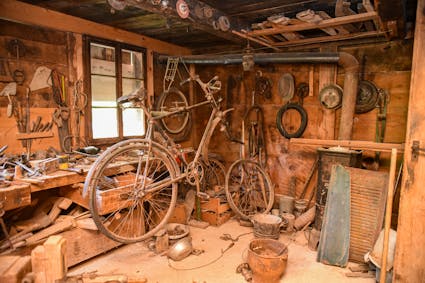741 – Farmhouse from Escholzmatt LU, 19th Century
Josef Felder is recorded in 1744 as the earliest owner of the house called "Wissämmeli".

Entlebuch House
A special type of house arose in the Entlebuch region of Canton Lucerne between 1750 and 1850. In Switzerland it is an especially unparalleled achievement in rural architecture. The front parlour and the everyday parlour are in the corner with the window front, further back the kitchen and then at the rear a shed; the bedrooms lie in the upper storey. The workspace of the farm protrudes above them and above the window front, lending a quaint staggered aspect to the main facade.

Recycled Wood
Dendrochronological research (analysis of annual tree rings) suggests three construction phases, all in the years around 1800. Records refer to a new building in 1860. The new building may have been built with old wood, perhaps parts of an older house. Felling and transporting a tree and preparing construction timber required so much manual labour that it was often reasonable to recycle used materials.
A Handyman’s Realm
Josef Felder is recorded in 1744 as the earliest owner of the house called “Wissämmeli”. Johann Portmann (died 1986) was the last occupant. In the meantime Wissämmeli had changed hands 35 times and had had additions made in 1940. The interior has survived almost intact, including Johann Portmann’s workshop. The farmer and handyman saved and repaired used material of all kinds and made new things. His workshop resembles a laboratory for Jean Tinguely, his collection of artefacts is like a “musée sentimental”.

Ballenberg
Swiss Open-Air Museum
Museumsstrasse 100
CH-3858 Hofstetten bei Brienz
Opening hours Administration
3 November 2025 to 8 April 2026
From Monday to Friday
8.30 am to 11.30 am
1.30 pm to 4.30 pm
Opening hours
9 April to 1 November 2026
10 am to 5 pm daily